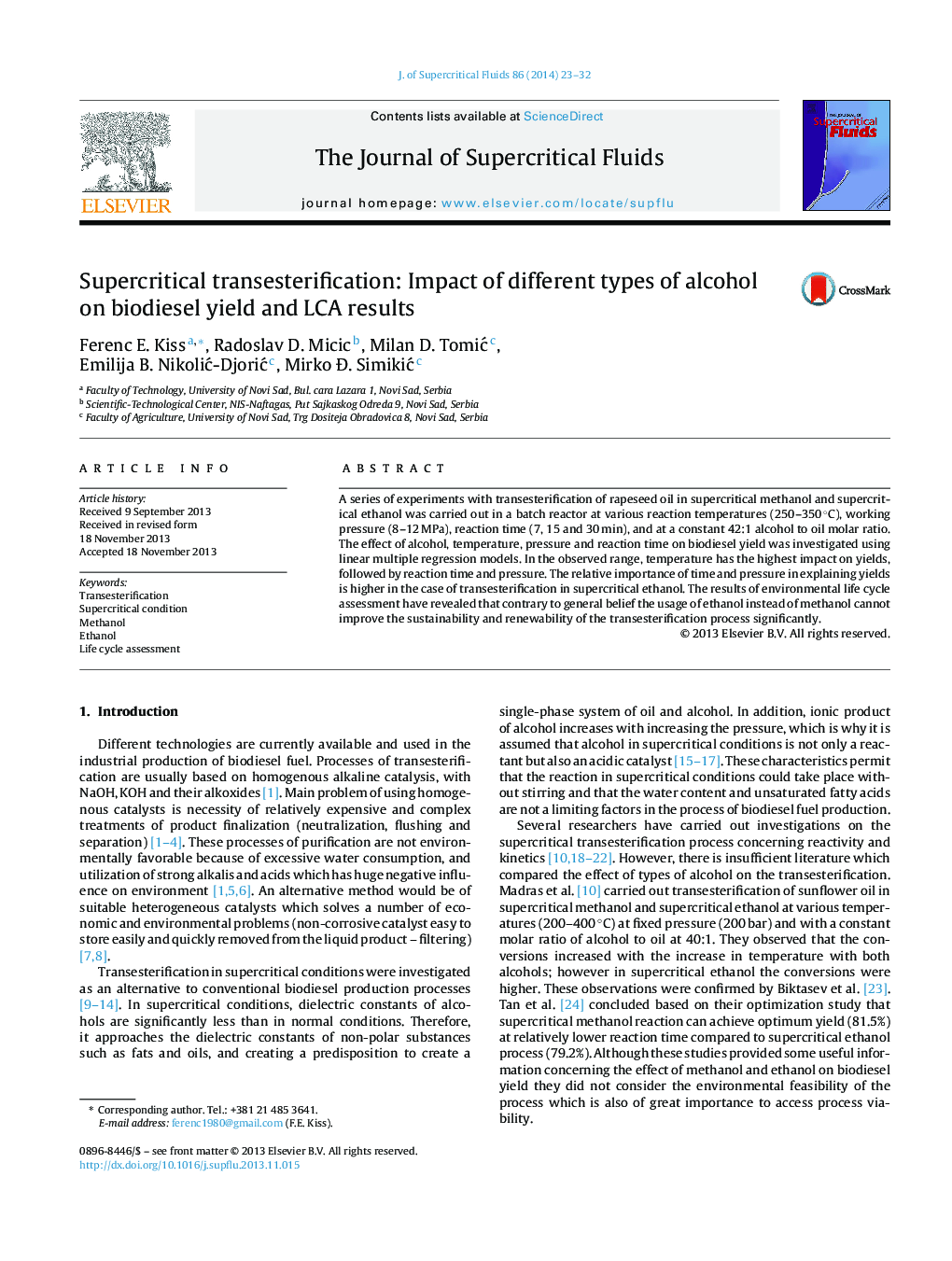| Article ID | Journal | Published Year | Pages | File Type |
|---|---|---|---|---|
| 230562 | The Journal of Supercritical Fluids | 2014 | 10 Pages |
•Transesterification in supercritical methanol and ethanol investigated.•Effect of alcohol, reaction temperature, pressure and time on yields analyzed.•Comparative life cycle assessment of production alternatives performed.•Temperature has the highest impact on yield, followed by time and pressure.•Very limited potential of ethanol to improve the sustainability of the process.
A series of experiments with transesterification of rapeseed oil in supercritical methanol and supercritical ethanol was carried out in a batch reactor at various reaction temperatures (250–350 °C), working pressure (8–12 MPa), reaction time (7, 15 and 30 min), and at a constant 42:1 alcohol to oil molar ratio. The effect of alcohol, temperature, pressure and reaction time on biodiesel yield was investigated using linear multiple regression models. In the observed range, temperature has the highest impact on yields, followed by reaction time and pressure. The relative importance of time and pressure in explaining yields is higher in the case of transesterification in supercritical ethanol. The results of environmental life cycle assessment have revealed that contrary to general belief the usage of ethanol instead of methanol cannot improve the sustainability and renewability of the transesterification process significantly.
Graphical abstractFigure optionsDownload full-size imageDownload as PowerPoint slide
